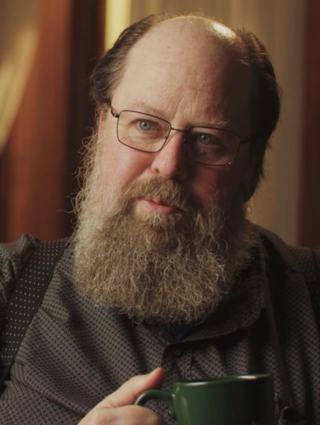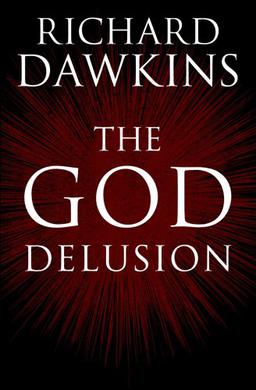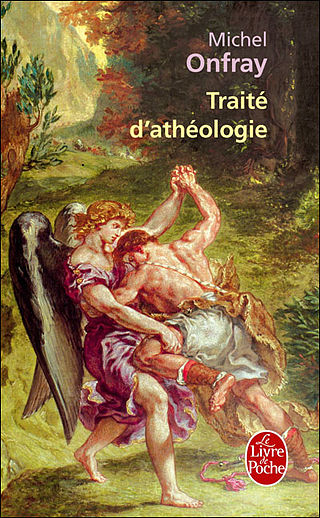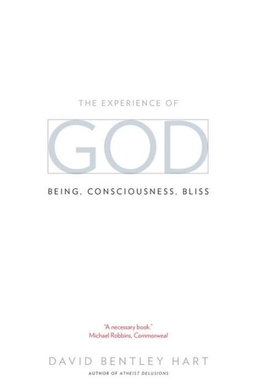Michael Lou Martin was an American philosopher and former professor at Boston University. Martin specialized in the philosophy of religion, although he also worked on the philosophies of science, law, and social science. He served with the US Marine Corps in Korea.

Antony Garrard Newton Flew was an English philosopher. Belonging to the analytic and evidentialist schools of thought, Flew worked on the philosophy of religion. During the course of his career he taught philosophy at the universities of Oxford, Aberdeen, Keele, and Reading in the United Kingdom, and at York University in Toronto, Canada.

Jean Meslier was a French Catholic priest (abbé) who was discovered, upon his death, to have written a book-length philosophical essay promoting atheism and materialism. Described by the author as his "testament" to his parishioners, the text criticizes and denounces all religions.

Michael Ruse is a British-born Canadian philosopher of science who specializes in the philosophy of biology and works on the relationship between science and religion, the creation–evolution controversy, and the demarcation problem within science. Ruse currently teaches at Florida State University.

David Bentley Hart is an American writer, philosopher, religious studies scholar, critic, and theologian. Reviewers have commented on Hart's baroque prose and provocative rhetoric in over one thousand essays, reviews, and papers as well as nineteen books. From a predominantly Anglican family background, Hart became Eastern Orthodox when he was twenty-one. His academic works focus on Christian metaphysics, philosophy of mind, Indian and East Asian religion, Asian languages, classics, and literature as well as a New Testament translation. Books with wider audiences include The Doors of the Sea, Atheist Delusions, That All Shall Be Saved, and Roland in Moonlight.
Atheism is the rejection of an assertion that a deity exists. In a narrower sense, hard atheism is specifically the position that there are no deities, effectively taking the stance of a positive claim in regards to the existence of any goddess or god. The English term 'atheist' was used at least as early as the sixteenth century and atheistic ideas and their influence have a longer history.
Antireligion is opposition to religion or traditional religious beliefs and practices. It involves opposition to organized religion, religious practices or religious institutions. The term antireligion has also been used to describe opposition to specific forms of supernatural worship or practice, whether organized or not. The Soviet Union adopted the political ideology of Marxism–Leninism and by extension the policy of state atheism which opposed the growth of religions.
Criticism of atheism is criticism of the concepts, validity, or impact of atheism, including associated political and social implications. Criticisms include positions based on the history of science, philosophical and logical criticisms, findings in both the natural and social sciences, theistic apologetic arguments, arguments pertaining to ethics and morality, the effects of atheism on the individual, or the assumptions that underpin atheism.

The God Delusion is a 2006 book by British evolutionary biologist and ethologist Richard Dawkins. In The God Delusion, Dawkins contends that a supernatural creator, God, almost certainly does not exist, and that belief in a personal god qualifies as a delusion, which he defines as a persistent false belief held in the face of strong contradictory evidence. He is sympathetic to Robert Pirsig's statement in Lila (1991) that "when one person suffers from a delusion it is called insanity. When many people suffer from a delusion it is called religion." In the book, Dawkins explores the relationship between religion and morality, providing examples that discuss the possibility of morality existing independently of religion and suggesting alternative explanations for the origins of both religion and morality.

Letter to a Christian Nation is a 2006 book by Sam Harris, written in response to feedback he received following the publication of his first book The End of Faith. The book is written in the form of an open letter to a Christian in the United States. Harris states that his aim is "to demolish the intellectual and moral pretensions of Christianity in its most committed forms." In October it entered the New York Times Best Seller list at number seven.
Christian atheism embraces the teachings, narratives, symbols, practices, or communities associated with Christianity without accepting the literal existence of God.
Atheism, in the broadest sense, is an absence of belief in the existence of deities. Less broadly, atheism is a rejection of the belief that any deities exist. In an even narrower sense, atheism is specifically the position that there are no deities. Atheism is contrasted with theism, which in its most general form is the belief that at least one deity exists.
The term New Atheism describes the positions of some atheist academics, writers, scientists, and philosophers of the 20th and 21st centuries. New Atheism advocates the view that superstition, religion, and irrationalism should not simply be tolerated. Instead, they advocate the antitheist view that the various forms of theism should be criticised, countered, examined, and challenged by rational argument, especially when they exert strong influence on the broader society, such as in government, education, and politics. Major figures of New Atheism include Richard Dawkins, Sam Harris, Christopher Hitchens, and Daniel Dennett, collectively referred to as the "Four Horsemen" of the movement, as well as Ayaan Hirsi Ali, until her conversion to Christianity in 2023.
Articles related to philosophy of religion include:

Atheist Manifesto: The Case Against Christianity, Judaism, and Islam is a 2005 book by French author Michel Onfray. According to Onfray, the term "athéologie" is taken from a project of a series of books written and compiled by Georges Bataille under the vocable La Somme athéologique, which was ultimately never completed.

The Closing of the Western Mind: The Rise of Faith and the Fall of Reason (2003) is a book by the classical historian Charles Freeman, in which he discusses the relationship between the Greek philosophical tradition and Christianity, primarily in the fourth to sixth century AD. He argues that far from suppressing Greek philosophy, Christianity integrated the more authoritarian aspects of Platonism at the expense of the Aristotelian tradition. He explores the contribution of the Roman emperors to the definition of Christian doctrine, an argument followed up in his 2009 book AD 381. He dates "the reopening of the western mind" to the integration of Aristotle's thought into Christian doctrine by Thomas Aquinas in the thirteenth century.
The Devil's Delusion: Atheism and Its Scientific Pretensions is a 2008 book by David Berlinski. It discusses atheism and religion, defending the religious point of view.
This is a list of books, selected essays, and selected recordings by David Bentley Hart in reverse chronological order.

The Experience of God: Being, Consciousness, Bliss is a 2013 book by philosopher and religious studies scholar David Bentley Hart published by Yale University Press. The book lays out a statement and defense of classical theism and attempts to provide an explanation of how the word "God" functions in the theistic faiths, drawing particularly from Christianity, Islam and Hinduism.









